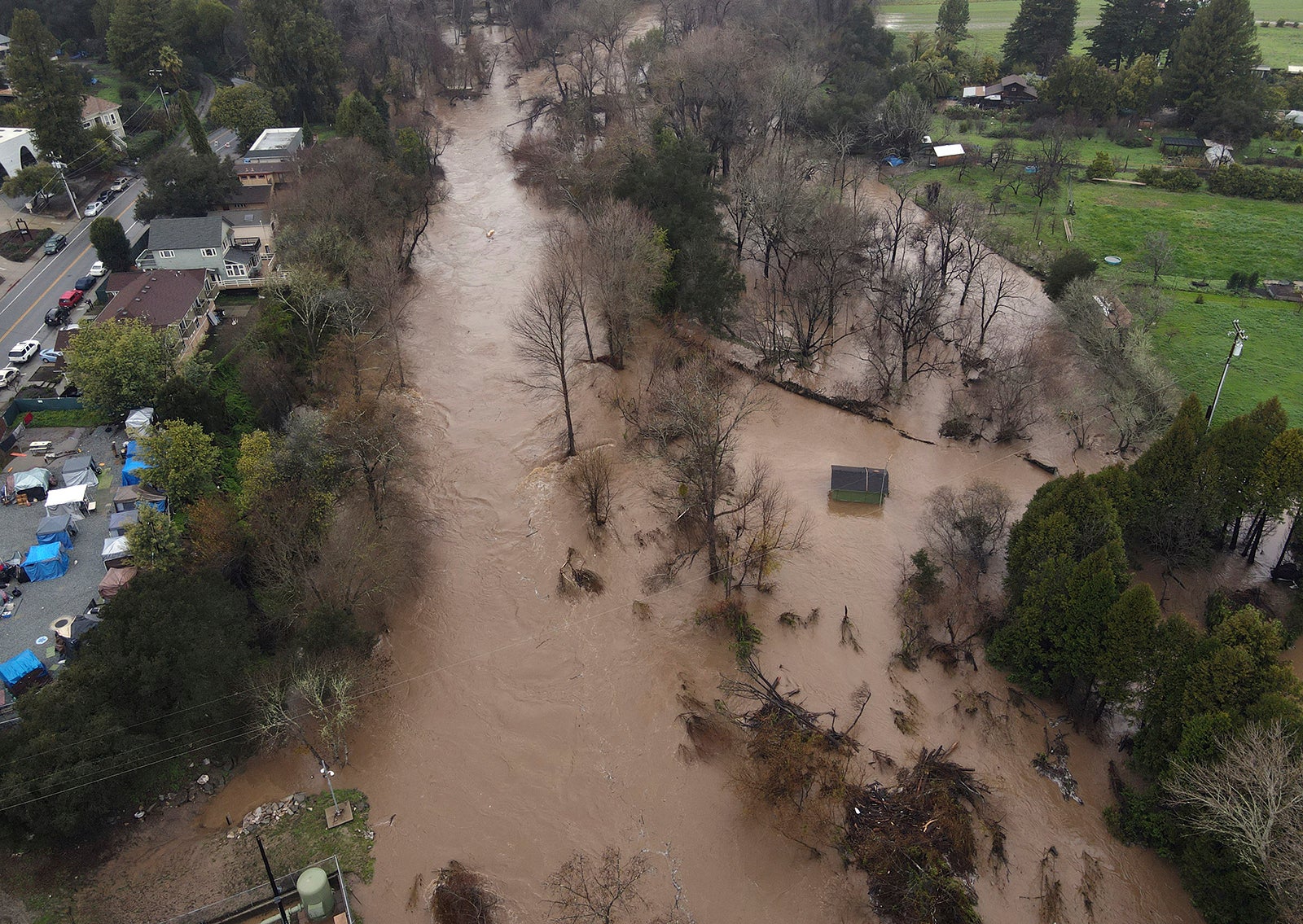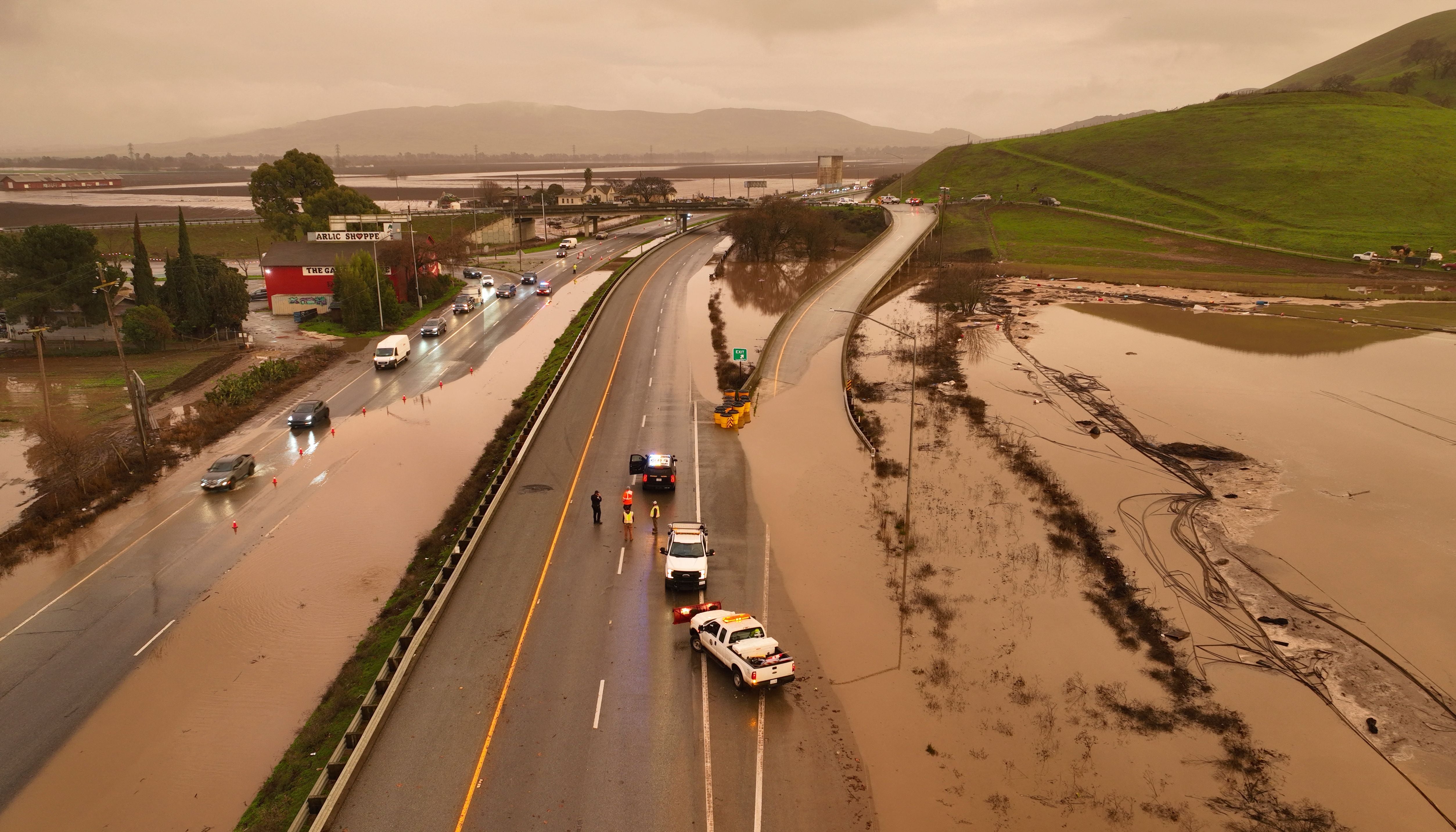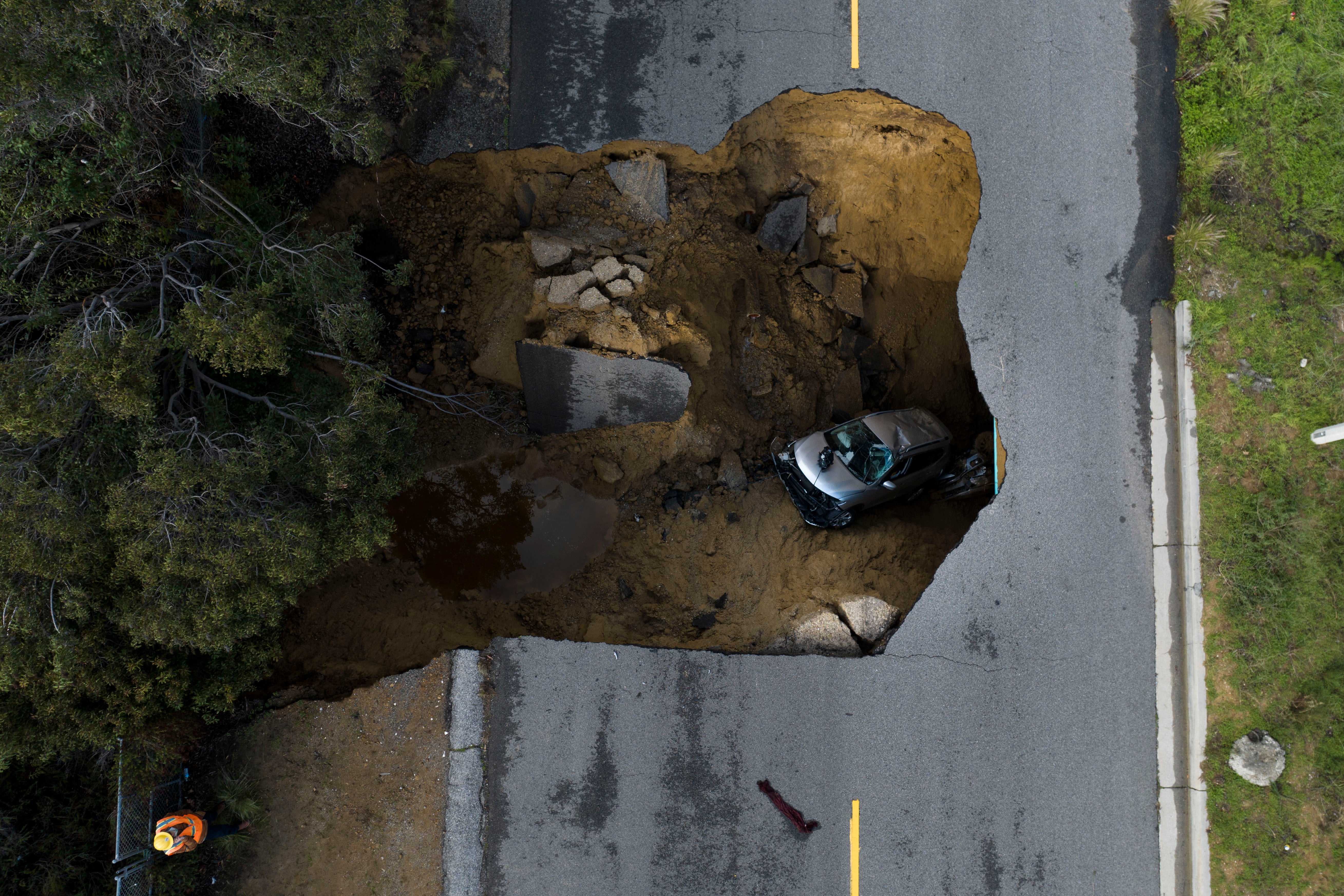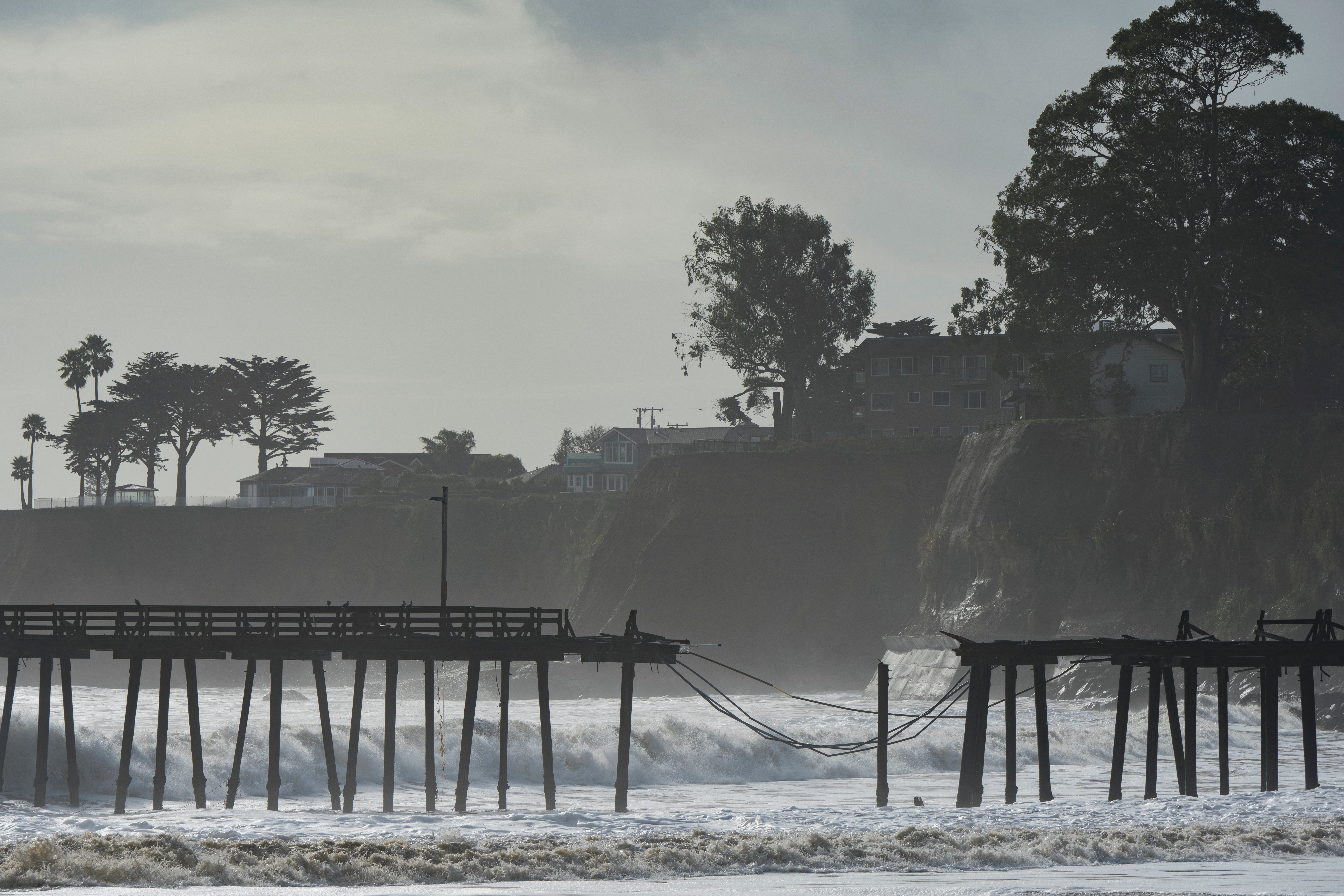I’ve had terrifying near misses in the California storms - not everyone is as lucky
Living through the climate crisis is a long exercise of wondering when your luck will run out


Your support helps us to tell the story
From reproductive rights to climate change to Big Tech, The Independent is on the ground when the story is developing. Whether it's investigating the financials of Elon Musk's pro-Trump PAC or producing our latest documentary, 'The A Word', which shines a light on the American women fighting for reproductive rights, we know how important it is to parse out the facts from the messaging.
At such a critical moment in US history, we need reporters on the ground. Your donation allows us to keep sending journalists to speak to both sides of the story.
The Independent is trusted by Americans across the entire political spectrum. And unlike many other quality news outlets, we choose not to lock Americans out of our reporting and analysis with paywalls. We believe quality journalism should be available to everyone, paid for by those who can afford it.
Your support makes all the difference.As powerful storms continue to batter California, my family and I have had three near-misses so far.
To ring in the New Year, I spent some time in the Santa Cruz Mountains, where heavy rains and downed power lines shut down the highway. A few days after I went home, the nearby San Lorenzo River rose by 20 feet and put the mountain town of Felton Grove under four feet of water.

During the next round of storms, I watched as Highway 101, a road I’d planned to be driving down in the coming days, was buried in flood waters near Gilroy.
Further south, my parents, who live on the Monterey Peninsula, were able to dodge blackouts because they have a generator. Local officials are now warning the area could become an “island” in the coming days because of heavy flooding all around, cutting off roadways.

And we’re the lucky ones.
An estimated 18 people have been killed during the storms, which began in late December, including a 43-year-old woman discovered in a submerged vehicle in Sonoma County on Wednesday, and 2-year-old Aeon Tocchini, who was killed when a redwood fell on his family’s mobile home. Others have gone missing, like 5-year-old Kyle Doan, who was swept out of his mother’s arms by flood waters after their SUV crashed near Paso Robles.

At various points, more than 100,000 people in the state were without power, as sinkholes opened on busy roadways and whole hillsides, often scarred by past catastrophes like drought and wildfire, came tumbling down.
As a highway trooper gave me directions in Santa Cruz, I overheard a man telling another officer about his wife, who was trapped behind the road closures, in need of medical attention. On Instagram, I watched as the rising Carmel river swallowed the backyard where a friend and I once did scavenger hunts and played on the trampoline. He’s now raising his two children there. They’ve had to move to higher ground.
Living in California, or anywhere else, during our era of climate crisis is a long exercise of wondering when your luck will run out. When I was a child, wildfires were spoken of in historical terms. I’ve watched each year as record-breaking fires arrive with less time in between, as the smoke line goes from a distant puff on the mountaintops in the horizon to close enough that my parents were under evacuation watch.
It can also feel equal turns banal and surreal. Once the disaster is on, there’s not much to do besides wait and hope something worse doesn’t happen, as you survey the unnerving things already happening. Last night, I repurposed my N95 mask from one crisis to another, strapping it on as I scrubbed a sudden profusion of black mold that began climbing across my bedroom wall after days of unrelenting damp.
On Tuesday, I watched California governor Gavin Newsom announce plans to slash $6bln in climate funding from a proposed $54bln climate package that was only approved last session. That same day he visited Capitola, where storm surges decapitated a historic pier,

My point is not to dwell in the doom and gloom of it all – there’s plenty of doom and gloom to go around without my help – but to underscore what should already be clear: we’re living in the climate crisis. It is already affecting you, me, and everyone you know, in ways ranging from the small to the existential. The only distinction now is between those who acknowledge this truth and those who don’t; those who have experienced the full brunt of an actively changing world, and those who haven’t just quite yet.
As someone who has gotten lucky so far, I sincerely hope those in power at all levels don’t leave something so important to chance, and that those who see the climate crisis through the lens of a bystander realize they are more than that. They are participants, potential victims, and potential activists and organisers.
Luck isn’t a climate policy. It’s hoping things will work out without doing anything to assure that result. It’s a standard that’s morally unacceptable. California shows us the stakes of why we cannot accept passivity at this moment. We have to make our own luck.
There’s plenty we can’t control about the climate and its impact on our fates, but there’s plenty we can control, too.
Join our commenting forum
Join thought-provoking conversations, follow other Independent readers and see their replies
Comments